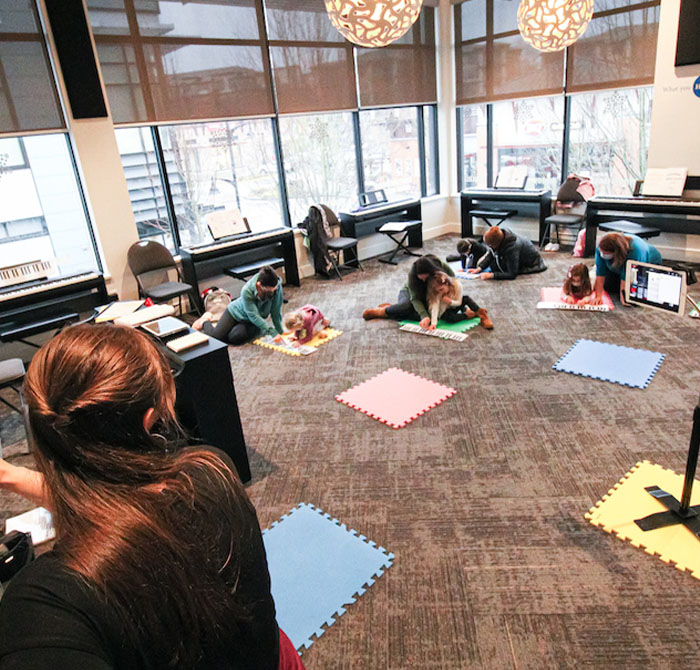Early Childhood Music Classes… are they worth it?
Many times, music is placed in on the backburner or as an afterthought when it comes to education. I truly believe children who are involved in music early on learn more about music but also much more. Music is one of the few things that gives your brain a workout – it ignites every part of your brain. Your brain must work very hard to make sense of what you are hearing. Group classes are endlessly fun for everyone involved! Children get to engage with others their age, parents and teachers get to see them grow and learn. Music also develops motor, language, memory, and social skills which can and will be beneficial to your child in the future. It improves the quality of life – just listening to music can reduce anxiety and pain and improve or boost your mood.
There’s Science in Music
Looking at this from a scientific and historical point of view, studies as early as 1950 have proven that people hear and express music differently at different ages. The most important period of which to develop musical skills is from birth to age six. Children are like a sponge at this young age, and we have a unique opportunity to train their musical ear very effectively. We can help develop accurate pitch through solfege singing, and children are able to learn how to feel the rhythm in music through aural training. The early years are important to developing sound association, mental organizational skills, and emotional and logical intelligence.
Music has a way of directing our emotions outwards. Learning to deal with emotions in a healthy way is important and the earlier we begin this process, the healthier the mindset and emotional wellbeing your child will have as they grow up. An example of how music can help us deal with emotions is when the covid pandemic was at its height, people were standing on their balconies playing and singing together. What a way to connect with each other and share the struggles we have in an unspoken and uplifting way!
Parent Participation is Important
Parent participation is also very important, whether it is simply at home or being part of a group or private lessons. We highly encourage parents to participate by practicing with their children. A study conducted by Kelley and Sutton-Smith really shows how essential it is. The study consisted of watching three young girls and their parents. Each family had a varying degree of musical background: professional musicians, amateur musicians, and non-musical. They discovered that there was not only a difference in how quickly the young girls learned music but also the depth of their relationship from parent to child. The more the parents engaged in music classes with their children by listening or practicing with them, the more connected the children were to their parents. Spending time learning, listening, and practicing music, gave the families something to do together…something to bond over, to grow together, and to learn together.
So far, all evidence points to early childhood music classes having a positive long-term impact! Children learn and develop life skills through the act of learning music. The physical learning of an instrument encourages and builds motor skills – it is your mind and body working together to accomplish something. It helps with language because, in learning music, we learn to associate the sound with meaning. We also learn to read music which is associating a shape to a sound…much like reading words. Engaging in music allows us to connect in social and emotional ways as well. Music requires a clear mind, good memory, planning, and problem-solving to learn a piece of music. And, in my opinion, the best part? Playing music together with other people – engaging in the community, having fun with people…making friends.
Click here to find out more about our Jitterbugs Program (Age 2), Beeboppers Program (Age 3), and our Pianorama Program (Ages 4-9)!

